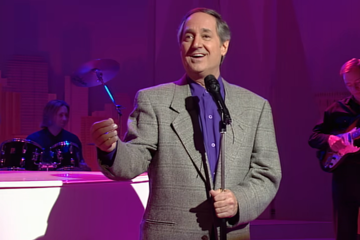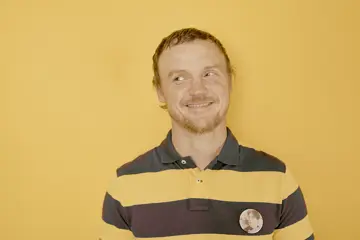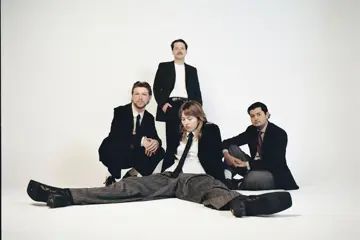They were dubbed “The silence breakers.” On the cover of Time Magazine, not an individual, but a collective of courageous women were honoured as the 2017 Person of the Year. They had spoken out about their experiences of sexual harassment in the American film industry, and in doing so, destabilised a quid pro quo culture fuelled by grossly entrenched inequality. The damning revelations emerging from Hollywood would send ripples around the world, affecting a groundswell for change in other entertainment industries internationally. For some, this would mean a reckoning. But for women working in many creative professions, it has offered empowerment and an opportunity to feel part of a global movement.
This was perfectly displayed at this year’s Cannes Film Festival. At arguably the most high-profile platform of its type in the world, 82 women led by Australia’s own Cate Blanchett, staged an unprecedented red carpet protest on the steps of the Palais de Festivals. Made up of actors, directors and other industry creatives, the 82 women represented the number of films by female filmmakers selected for competition consideration in the Festival’s history., in stark contrast to the 1,866 films directed by men.
Sydney Film Festival, however, is keenly aware that major cinema events have a responsibility to champion greater representation. Achieving gender parity in its 2018 competition line-up, alongside a strong focus on female filmmakers in its main programming, this year’s Festival offers a spotlight on the need to continue fostering diversity and equality, both on screen and behind the scenes.
Marta Dusseldorp, widely known for her acclaimed AACTA award-winning performance in ABC’s Janet King, is chairing this year’s Lexus Australia Short Film Fellowship Jury – where she and her fellow jury members will award four recipients $50,000 to make their next short film.
Don't miss a beat with our FREE daily newsletter
When asked about the impact of the #MeToo and Time’s Up movements on the Australian film industry, Dusseldorp emphasises the need to look forward to create change. “I think we can never go backwards. That’s the beauty of progressive behaviour - you can’t go back to zero. This is what I love about being a storyteller and being involved with something like the Sydney Film Festival. It’s about humanity, and it’s about courage and resilience and vulnerability,” she says. “These are the qualities that we all muck around in for our lives, and this is what filmmaking, storytelling and television are all reflecting these days. So together, we will dream up this fairer world. To me, it’s really important that it’s not just an army... it has to be a battle and a conversation. To me, it’s common sense, and I’m there to support anyone who hasn’t got the voice. I'll use the voice that I have to stand up and speak up directly.”
Since viewing the short film applications, Dusseldorp is optimistic about what the next generation will bring in levelling out female representation in onscreen storytelling: “I have really loved [the applicants’] intent and commitment. It shows how curious the next generation are. The whole of the Sydney Film Festival is about saying, ‘Tell stories, be a part of the conversation of the world.’ They are way ahead of the world in understanding how we need to be represented, how we need to tell our stories, and how they fit into stories. It’s good to see that everyone is staying true and are in the world of today. We’re in good hands.”
One such storyteller is 22-year-old animator Isabella Spagnolo, whose short film Tied, was selected as part of the Dendy Awards for Australian Short Films. Her film, co-directed with Stephanie Davidson, follows Clarisse, a secretary at a corporate office whose professional world is shaken when her boss enters with a new piece of clothing – tapping into her secret passion for colourful fashion.
"We've just got to keep pushing and making it happen and being uncompromising about these standards. Because it can only be a good thing."
Spagnolo wanted to examine the subtleties of communication in the way she animated her film: “We really wanted to create a film that was about expression, and what happens when someone is in a society where that expression has to be repressed. [When we animated this film] it was always about, how does a woman actually move? And how does she actually feel? And if we were feeling these emotions, how would we express that?”... Even though it’s a very romantic sort of film, it’s not about the romance between her and her boss. It’s about this romance between something in herself as well.”
As an emerging filmmaker, she is equally hopeful about the changes in the industry, and is excited about playing her part in telling more culturally diverse and female stories on film. “A lot of people don’t realise that animation has such a universality to it. It has possibilities to bring together people from all different cultures and backgrounds,” she says. “So I feel like that’s something I want to keep exploring: the language of animation and how we can use it to help people, to create things that can hopefully bring the world a little bit closer together.”
Actor Anna Lawrence, who stars in Chocolate Oyster, a new Australian feature-length comedy directed by Steve Jaggi, has also perceived a shift in the way women interact with each other, as the tent poles of the industry have shifted in recent months. “Being an actor can be very competitive, and that’s not always a very nurturing environment, particularly if you’re at the beginning of your career,” she explains. “I’ve definitely noticed a change in the audition room – it’s almost this unspoken acknowledgement that we should be supporting each other, not trying to bring each other down.”
But Lawrence cautions against the expectation that change will be swift, or that adjustments in the wider treatment of women in the industry will be unanimous. “We have to understand that this was and still is a really deep-rooted part of our industry and it won’t change overnight. This is a period of re-education for a lot of people, and while younger film professionals get it, there’s still the same power brokers running the industry. So partly, change is going to be a waiting game,” she says. “I worry that this movement could be dismissed as a fad or tokenistic. A male colleague of mine said to me recently, ‘Oh, now I know what it’s like to be a woman, because there’s this reverence for female directors and producers now, and it’s harder for men.’ I was like, ‘Mate. No, you don’t know what it’s like!’ And that, to me, is a prime example of someone who sees equality as a trend rather than a movement for lasting change.”
Stef Smith, producer of Daniel Monks' heartbreakingly poignant short film Broken, part of Sydney Film Festival’s Screenability program, believes an important conversation is also opening up about how Australian cinema can offer a more faithful reflection of Australia's diversity: “People need to see themselves to feel valued, and almost normalised, in a way. But for a lot of queer people, people of colour, people with disabilities, they see what films are out there in the mainstream and think to themselves, ‘Well, where the fuck am I in these? Where am I in this world? In this narrative? I go to the cinema, and I don't exist.’”
In Smith’s opinion, the path to more inclusive storytelling is to make professions within the film industry, both in front and behind the camera, more accessible. “I believe that the times are changing," she says, "and rightly fucking so. It really is about time. But there’s definitely more that can be done. I've always strived, whether I was on-set as a director, or facilitating a production as a producer, to make every single shoot gender equal. So, I would have gender parity productions, and then I would also try to make my production inclusive, particularly behind the scenes. But there is such a negative perception of people with disabilities being on set. It’s like, ‘Oh god, is it gonna slow us down. It's already so hard. There's already so much going on. How are we going to do it?’ And you know what? You just fucking have to do it.
“So, with everything that's happening and gender diversity and differently-abled people being seen on screen and things becoming more inclusive, we've just got to keep pushing and making it happen and being uncompromising about these standards. Because it can only be a good thing. There's a film in this year’s festival that has an able-bodied actor playing a disabled character. I am hoping this is the last time I will ever see that.”
The Sydney Film Festival plays at venues across Sydney from 6 June















